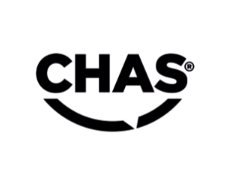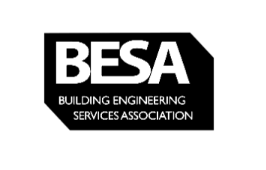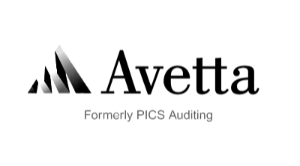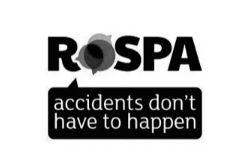Since 1st April 2025, many businesses have been affected by increases to Landfill Tax, as well as by increases to National Insurance and Minimum Wage. These increases mean that many businesses are facing a big increase to outgoing costs.
Since the Standard Rate of UK Landfill Tax increased by 21.6% on April 1st 2025, businesses will now be looking at ways to reduce costs associated with waste sent to landfill, while still ensuring legal and safe disposal.
Who pays Landfill Tax in the UK?
Landfill Tax in the UK applies to all waste disposed of by businesses by way of landfill at a licensed site, unless the waste is specifically exempt. Landfill Tax does not apply to household waste as local councils are responsible for its disposal.
The purpose of this environmental tax is to try and reduce the amount of waste sent to landfill by businesses, and to instead encourage businesses to prioritise recycling and implement more sustainable waste management practices to divert waste from landfills.
Landfill Tax promotes the principle of the waste hierarchy, where landfill is the least favourable option. It encourages businesses to explore alternative waste management options, including recycling and energy recovery.

How much are UK Landfill Tax rates?
|
|
Rate from 1 April 2025 |
Rate from 1 April 2024 |
Rate from 1 April 2023 |
|
Standard rate |
£126.15 per tonne |
£103.70 per tonne |
£102.10 per tonne |
|
Lower rate |
£4.05 per tonne |
£3.30 per tonne |
£3.25 per tonne |
Rates for Landfill Tax are annually set by UK Government. They are usually updated from the 1st April each year. Landfill Tax is charged based on the weight of the waste deposited in landfill sites.
The price increase on the Standard Rate of Landfill Tax from 2024 to 2025 represents an increase of 21.6%. This is in comparison to the 2023 to 2024 increase which was 1.5%.
Rates set by UK Government for Landfill Tax apply in England, and Northern Ireland.
Landfill Tax in Wales and Scotland
Landfill Tax has been devolved in Scotland since 2015 and in Wales since 2018 but 2025 rates are currently the same as those set by UK Government.
Landfill Disposals Tax in Wales
In Wales, Landfill Tax is called Landfill Disposals Tax (LDT). LDT replaced Landfill Tax in Wales from April 2018. The standard rate in Wales for LDT from 1st April 2025 is £126.15 per tonne.
Scottish Landfill Tax
In Scotland, Landfill Tax is called Scottish Landfill Tax (SLfT). SLfT replaced Landfill Tax in Scotland from April 2015. The standard rate in Scotland for SLfT from 1st April 2025 is £126.15 per tonne.
The Scottish Landfill Tax Register contains information on businesses to help manage the tax.
The Scottish Landfill Communities Fund (SLCF) is a tax credit scheme that allows landfill operators to contribute tax credits towards environmental projects and projects that benefit local communities.
What is the difference between the Standard Rate and the Lower Rate of UK Landfill Tax?
There is a clear distinction between standard rates and lower rates that apply specifically to inactive waste.
Inactive waste includes materials such as rocks, soil, and construction debris that do not generate harmful environmental impact. are taxed at a lower rate compared to active waste.
How can I reduce the amount of Landfill Tax I pay?
As Landfill Tax increases, waste producers face higher disposal costs and must pay Landfill Tax, which may lead to significant cost increases for businesses. Businesses must also pay normal landfill fees alongside the Landfill Tax.
By partnering with a sustainable hygiene services provider, businesses can easily reduce the amount of waste they send to landfill by reducing their reliance on landfill use.
phs offers a sustainable waste process for their customers through The phs LifeCycle Strategy process.
Sustainable waste management with the phs LifeCycle Strategy
As part of the phs LifeCycle Strategy, instead of landfill, the hygiene waste phs collects from customers is sent to energy-from-waste facilities, where it is turned into a source of renewable energy for the national grid. Allowing businesses avoid Landfill Tax increases while disposing of your offensive waste in a more sustainable way.
The Landfill Tax encourages businesses to seek alternative waste management solutions and invest in waste reduction strategies, promoting the development of recycling, composting, and energy-from-waste facilities.
Through the phs LifeCycle Strategy, phs diverts at least 55,000 tonnes of offensive waste from landfill each year. As the infrastructure allows this to increase, we will ensure that more of our tonnage is diverted.
Partner with a sustainable hygiene services provider
Partnering with a sustainable hygiene services provider can help you reduce the amount of waste your business sends to landfill. This will reduce your Landfill Tax costs while also improving the sustainability credentials of your business.
phs can work with your business to divert Offensive Waste away from landfill. This includes sanitary bin waste, male incontinence bin waste, nappy bin waste, and all non-clinical waste that’s non-infectious.



































